The Honorable Cheikh Niang,Senegal’s ambassador to the United Nations, attended via Zoom the recent graduation of African Leadership Group’s eighth Public Speaking class. His heartfelt remarks moved everyone who heard them. Below you will find the full text of his remarks, as well as a video of the talk. Enjoy the ambassador’s moving speech!
Dear CEO and Staff members of ALG,
Dear graduates,
Dear friends,
First of all, let me say how happy and proud I feel to participate in this event. I warmly thank the CEO and Leadership of ALG for their invitation and congratulate them on the development of this important training program.
As for you, dear graduates, I applaud you for successfully completing your training. You have been given the tools and skills you need. Now you have to put these skills to test and make good use of them. As you know, practice makes perfect. And remember that proper and well led communication is crucial in human interactions and if one wants to thrive in society.
Before getting to the heart of the matter, allow me to introduce myself. My name is Cheikh Niang. I am a Senegalese career diplomat. Born and raised in Senegal where I studied from primary school to university.
In terms of my current professional duties, since July 2018, I am the Ambassador of Senegal to the United Nations.
I started my diplomatic career in the early 90s at the Senegalese Ministry of Foreign Affairs as Head of the Africa Division. In 1995, I had the privilege of being appointed to the Presidency of Senegal, in Dakar, as Diplomatic Advisor to the President of the Republic, for 5 years.
My first posting abroad was in New York where I arrived in 2001. There, I was, first, Minister Counsellor at the Senegalese Mission to the United Nations in New York for 5 years, then Consul General with a jurisdiction covering the whole United States for 4 years.
Then, in 2010, I was appointed for two years as Ambassador of Senegal to South Africa, with residence in Pretoria. At that position, my jurisdiction included other countries in Southern and Eastern Africa (such as Namibia, Botswana, Zimbabwe, Mozambique, etc.).
After serving in South Africa, I was re-appointed to the US, for another 2 years; but that new tour of duty which started in 2012 led me to Washington DC, as Ambassador of Senegal to the United States; and I was concurrently appointed to Mexico, Paraguay, Uruguay and Panama.
After Washington DC, I was sent to Japan, as Ambassador. While I was in Tokyo, I was also the Ambassador of Senegal to Australia, New Zealand, Indonesia, Vietnam and Cambodia.
In my travels and in my contacts with others, I have always been profoundly aware of my true self: i.e. a Senegalese, an African. Aware that I have the sacred duty to always do honor to my country and my Continent, through my conduct and my everyday actions. Because in my view, it is very important in life to clearly set one’s marks and forge one’s self-motivation.
Indeed, I held these beliefs because I truly value African pride and personality, influenced as I have been by the writings and actions of Cheikh Anta Diop, Kwameh Nkrumah and other illustrious African figures.
Indeed, as a Senegalese and an African, I am proud to belong to a Continent that had a glorious past, but also (all current surveys lead to that conclusion) a Continent set to embrace a bright future.
When I speak of our glorious past, I think of the Africa of Kankan Moussa, Nelson Mandela, Kwame Krumah, Julius Nyerere, Patrice Lumumba…I also think of a Continent where flourished affluent empires and kingdoms, before the doom brought by the invading Europeans. And when I talk about its bright future, I think of the inevitable African Renaissance that is now taking shape before our eyes.
For it is obvious that Africa is today the last frontier. And there is no doubt that after the time of the West and that of the Asian Tigers, the time of Africa is imminent. A time that will enable us to witness a new and more prosperous Africa.
But let me now be less aloof and give you a peep at my personal journey.
And I will narrate here an earlier sequence in my life, when I was much younger. A life sequence that is certainly similar, in many respects, to yours, dear graduates. Because I guess that the feelings I experienced then must be similar to what you live now.
I had just completed my master’s degree at the English Department of the University of Dakar. At that time, the British Council used to select every year a number of Senegalese students with a master’s degree in English to send them to England for a one year stay. A year to perfect their English, but also a year where they would be employed in British high schools as French Assistants.
It was the first time I had been out of Senegal. So for the first time, I flew. And the plane landed at Heathrow Airport in London at dawn. From there I had to catch the bus to travel to the remote city of my destination, Scunthorpe, in the north east of England.
I arrived in December. In the middle of winter.
Imagine the shock. Weather shock: the severe cold that I was feeling in my flesh. Born in the heat of the Sahel , I arrived in London in December in an icy weather. I wore a coat but it was useless as I felt the cold in my bones.
Everything was hard and new to me. Everything was foreign to me.
Not only the weather. But also the food, the attitude of the people, the culture. Almost everything.
I suddenly realized that as much as everything seems to be in place when you are at home, you can, in equal measure, quickly lose your bearings abroad and develop fears.
Fear of being rejected by people with whom you apparently don’t have much in common. Fear of not being up to the task. Fear of not being understood. Fear of being bored to death. A very disturbing psychological shock!
So, all of a sudden you have all these shocks colliding in you: physical shock, psychological shock, culture shock, language shock. Which is a lot for a newcomer!
In such a situation, you are faced with two scenarios:
-Either fear dominates you and you literally exclude yourself from society;
-or you put things into perspective, learn to adapt and then you are set to enjoy a fulfilling stay.
As a matter of fact, if you are transplanted in a foreign land, the worst thing that can happen to you is to believe that you are so different that whatever you say or do is inacceptable to the people of the land.
For the truth is that even though we were born in different environments, even though we have started out with different cultures, what is constant is that we all have humanity in common. Subjected to the same imperatives. To the same desires. To the same ambitions. Endowed with the same potential to live the life we want. Therefore, we must believe in ourselves. Believe in our abilities. Be convinced that self-censorship hinders, and that optimism not only elevates, but liberates.
Indeed, when we choose to leave our country, the goal is often to enrich and promote ourselves and, if need be, bring back home what we have learned or gained. It is therefore in essence a noble undertaking.
But to succeed, one must have this conquering spirit, the desire to explore and be relevant.
It therefore requires obvious qualities. Self-confidence. It requires a state of mind. You need to recognize that, because you have a personal and different journey, you are shaped by distinct cultural traits, and even by a distinct accent. All that background will follow you. That is your “trademark”, your idiosyncratic marker.
So what you have to do, is accept who you are. Love it. Accept it. And thereon, go and reach out to the other. To enrich your neighbor and be enriched by him or her.
And believe me, I’ve been to so many countries, but I have not seen, outside Africa, a country more inclusive and welcoming than the United States.
The main reason is that migration is part of the DNA of this country which has been built by migrants hailing from all over the world. Therefore there is some kind of playing level field here.
In a country of migrants, all migrants are equal. In opportunities. Perhaps the only area where one can temporarily lag behind is language. The other one, in some cases, is accent. (When one’s primary tongue is not English. ) But whatever the foreign language, you can always learn it and perfect it. So is the case for the accent.
And actually accent has not prevented migrants to be successful in this country. I can name some famous Americans who, with their foreign accent, fared very well. Just to name a few: Henry Kissinger, Secretary of State; Albert Einstein, physicist; Arnold Schwarzenegger, Actor and Governor; Akon, singer from Senegal, etc.
This is my take:
1- Always perfect your English. (This is even true for natives)
2- Speak with your accent if you are comfortable with it.
3- But if you are unhappy with it, learn to adjust it to the one which pleases you.
But, ultimately, what is really important is to make yourself understood. And to avoid setting up psychological barriers which would bar you from being an effective member of your community and that would in the end alienate you and obstruct your progress towards full self-realization.
And whatever the situation you are in, always remember this inspiring reflection of a Roman writer, who was actually an Roman African writer. His name is TERENCE. And he made this powerful assertion:
“I am a man, and I hold that nothing human is foreign to me.”
Thank you for your attention.


